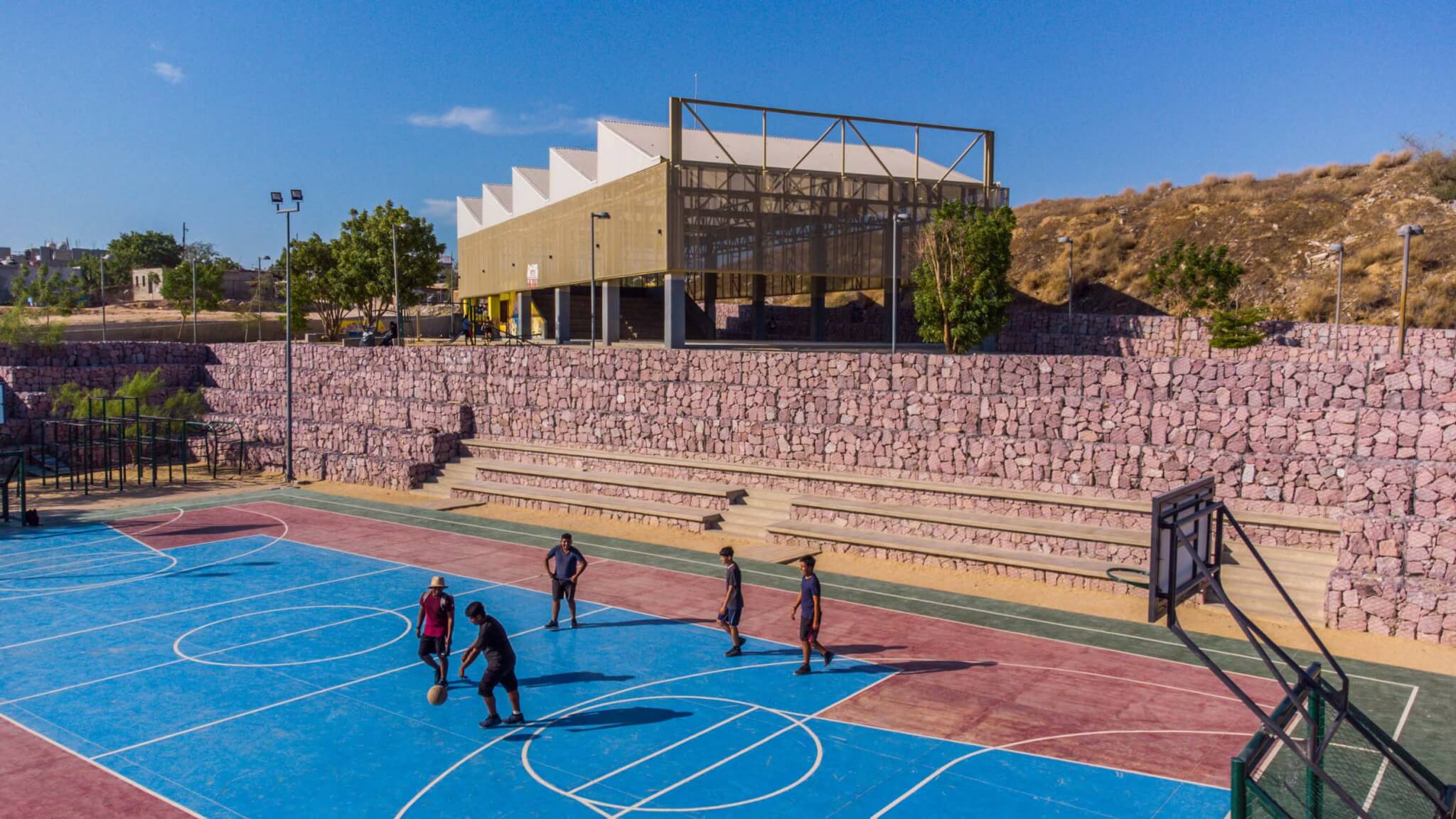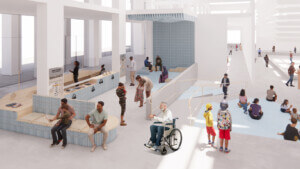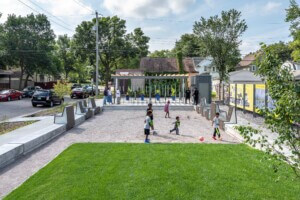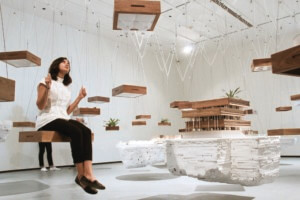This article is part of our series of profiles on The Architectural League of New York’s 2023 Emerging Voices winners published in the March/April issue of AN. The full list of winners can be found here.
Adriana Chávez, Victor Rico, and Elena Tudela lead Oficina de Resiliencia Urbana (ORU), a Mexico City–based design practice that pursues a deeply research-based approach to what architecture is and could be. Although all three had attended universities in Mexico City, the trio—along with their fourth cofounder, Guillermo Chávez—met at Harvard GSD when they worked together to submit an application for Mexico City to the Rockefeller Foundation’s 100 Resilient Cities initiative.
The group went on to establish ORU in Mexico City with the intent to pursue intellectual projects in addition to realizing built efforts. The latter are certainly underway—ORU has work under construction in Tultitlán, north of Mexico City, and two public infrastructure projects in Cabo San Lucas, both realized with collaborators—but the office is more comfortable with being speculative. Pushing against the pessimism that it sees many architects respond to when it comes to issues like climate change, the group questions the role of “the architect in the 21st or 22nd century,” Tudela told AN.
The firm works collectively and prioritizes efforts that provide a public benefit. Contrasting ORU with more traditional approaches to practice in Mexico, Rico said that many architects in the country fear that not all their projects will be built.

Meanwhile, ORU is content to be deeply research-based. Rico added that ORU is “not comfortable with authorship” and hopes that other designers appropriate the practice’s work as the needs and potential of architecture evolve in the future.
This willingness to consider architecture as a changing, evolving thing affects how ORU engages with building-centered projects. Tudela emphasized the importance of understanding not only a project’s “financing and implementation but also how to operate and maintain [it] over time.” This has led the firm to approach architecture with a focus on process rather than an interest in creating objects “frozen in time.”
ORU maintains a small full-time staff that works closely with a disciplinarily diverse set of collaborators as projects necessitate. These have ranged from biologists to geologists and, of course, the workers who construct the built work. ORU maintains architectural supervision on-site while also engaging larger project teams on solutions to design and technical problems.
ORU’s current work includes a hospitality complex in Jalisco that addresses regional ecological degradation, which has had an impact on the 13-hectare (32-acre) site, and a water resiliency plan for Monterrey that expands on prior work in both Mexico City and Bogotá.











